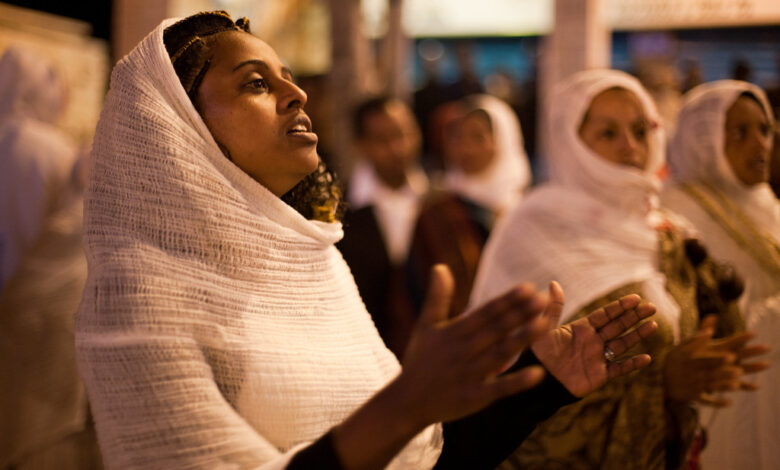Why Ethiopians Celebrate Christmas on January 7: A Deep Dive into Coptic Christian Traditions

Christmas, widely celebrated on December 25 across the world, takes on a unique form in Ethiopia and several other countries that follow the Julian calendar. Ethiopians celebrate Gena, or Christmas, on January 7 each year, aligning with their deeply rooted Coptic Orthodox Christian traditions. This date holds significant spiritual meaning in Ethiopia, Egypt, and Eritrea, where the followers of the Coptic Orthodox Church mark the birth of Jesus Christ.
In this article, we explore the fascinating traditions behind Ethiopia’s Christmas celebrations, focusing on the Coptic Christian faith, fasting rituals, and unique cultural practices surrounding Ethiopian Christmas (Gena).
Why Do Ethiopians Celebrate Christmas on January 7?
The celebration of Christmas on January 7 rather than December 25 is because of the difference between the Julian calendar used by the Coptic Orthodox Church and the Gregorian calendar. While most of the world follows the Gregorian calendar, Ethiopians, along with Egyptian and Eritrean Coptic Christians, observe the older Julian calendar, making their Christmas day fall on January 7 each year.
In Ethiopia, this event is more than just a religious celebration; it’s deeply intertwined with the nation’s cultural identity.
The Ethiopian Orthodox Tewahedo Church, one of the oldest Christian denominations in the world, has held on to this tradition for centuries.
Also Read: The Ethiopian Bible is the Original Bible and the Best Bible Version
How Do Ethiopians Prepare for Gena? The Fast of the Prophets
In the lead-up to Ethiopian Christmas, followers of the Coptic Orthodox faith engage in a period of fasting known as Tsome Nebiyat, or the Fast of the Prophets.
This fasting period lasts for 43 days (or 44 days in a leap year) and mirrors the fasts described in the Old Testament.
During this time, adherents adopt a strict vegan diet, refraining from consuming any animal products, including dairy and fish.
The fast is a time of spiritual reflection, purification, and renewal, and it is broken with a special meal on Christmas Eve. This period of sacrifice serves to prepare believers spiritually for the celebration of Gena.
The All-Night Christmas Eve Procession: A Sacred Celebration
On Christmas Eve, Ethiopian Orthodox Christians dress in traditional white clothing and gather at their local churches for an all-night mass. This event is filled with sacred rituals and is the heart of Ethiopian Christmas celebrations.
The church services are marked by prayers, hymns, and the lighting of candles. During the service, priests lead congregants in worship, and the sound of traditional Coptic hymns fills the air.
Worshipers stand for hours in prayer and devotion, creating a profound atmosphere of spirituality. The mass continues until the early hours of January 7, when the congregation breaks the fast with a vegan meal.
Also Read: How Africans Were Lured into the First Slave Ship’ Jesus of Lubeck
Gena: Ethiopian Christmas Day Celebrations
January 7 marks the official day of Gena, Ethiopian Christmas. After the all-night mass, the day is filled with festive activities that reflect both the religious and cultural richness of Ethiopia.
Traditional Ethiopian foods play a central role in the celebrations. People enjoy dishes such as Doro Wat (spicy chicken stew), Tere Siga (raw meat), and Injera (a flatbread made from teff flour). Friends and families gather together to celebrate with joy, feasting on these national delicacies.
Beyond the feasts, an old Ethiopian game called Ye Guena Chewata, which resembles hockey, is played by people of all social classes. Legend has it that one of the Three Wise Men who visited the baby Jesus was Ethiopian, adding to the significance of the day for Ethiopians.
Ethiopian Christmas and Its Global Counterparts
Interestingly, Ethiopia is not the only country that celebrates Christmas on January 7. Other countries such as Egypt and Eritrea—home to Coptic Orthodox Christians—also follow the Julian calendar, marking the birth of Christ on the same day.
These countries share similar fasting and mass traditions, making January 7 a significant religious date across the Coptic Christian world.
While Christmas celebrations in the Western world start with Christmas Eve services on December 24, Coptic Christians place a strong emphasis on the Nativity Fast and the mass on January 6 (Ethiopian Christmas Eve), reflecting their commitment to spiritual preparation before the joyous day of Gena.
Also Read: How The Story, Birth of Jesus And The Bible Was Copied From Ancient Egypt Spirituality
Conclusion: Ethiopia’s Unique Celebration of Christmas
Ethiopian Christmas, or Gena, offers a rich tapestry of religious devotion, cultural pride, and traditional celebrations.
Marked by fasting, prayers, and festive meals, the celebration of Christ’s birth on January 7 underscores the deep spiritual roots of the Ethiopian Orthodox Church and its followers.
From the sacred all-night Christmas Eve mass to the festive meals and traditional games, Gena reflects the enduring Christian heritage of Ethiopia.
For those interested in exploring Ethiopian Christmas traditions, visiting during the festive period is an opportunity to witness a culture deeply connected to its ancient religious roots.
References and Further Reading
- Learn more about Ethiopian Christmas and other Orthodox traditions: Ethiopian Orthodox Tewahedo Church
- Explore the history of the Julian and Gregorian calendars: History of the Julian Calendar
- Discover Coptic Christian traditions across Africa: Coptic Orthodox Church





